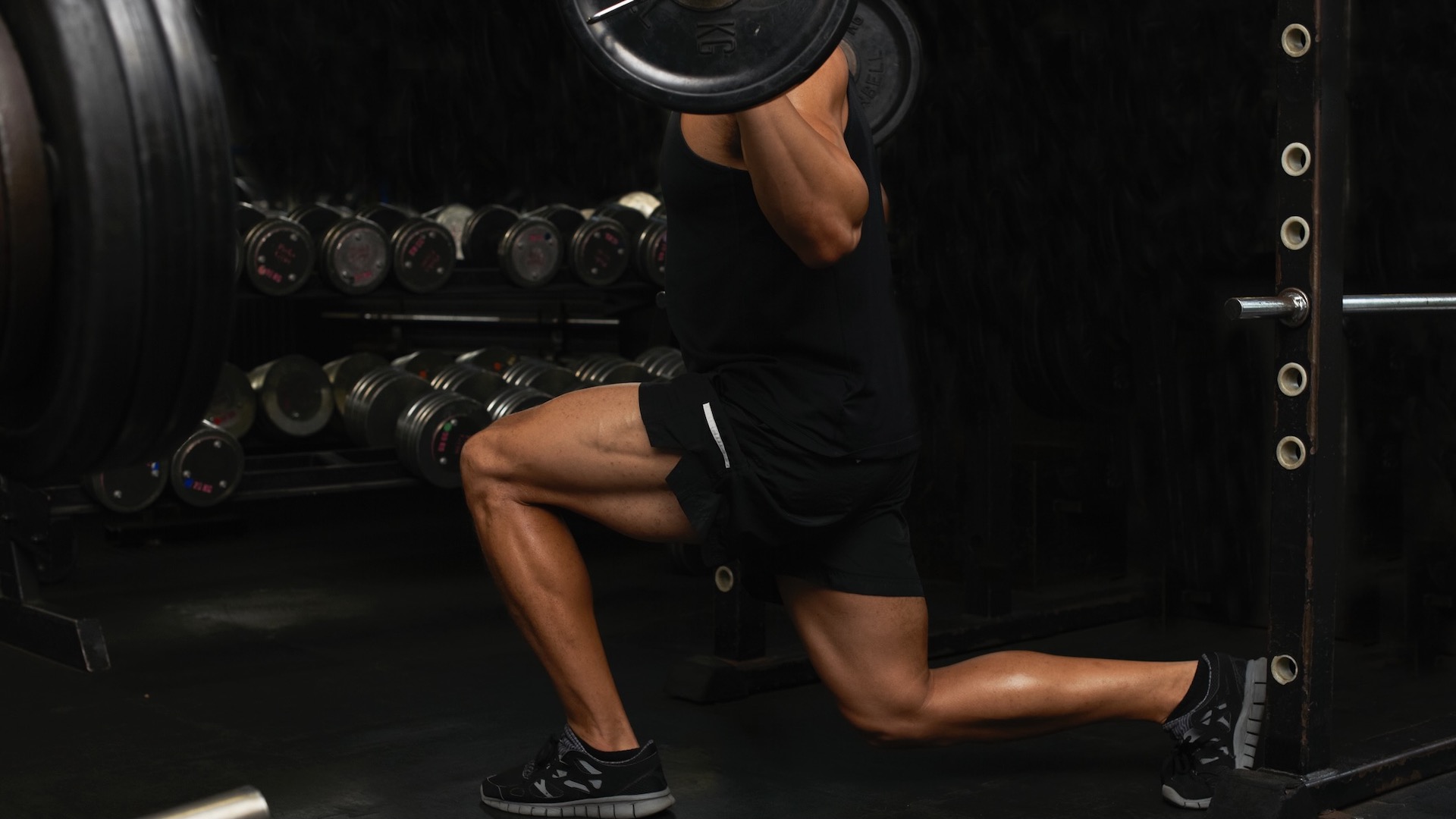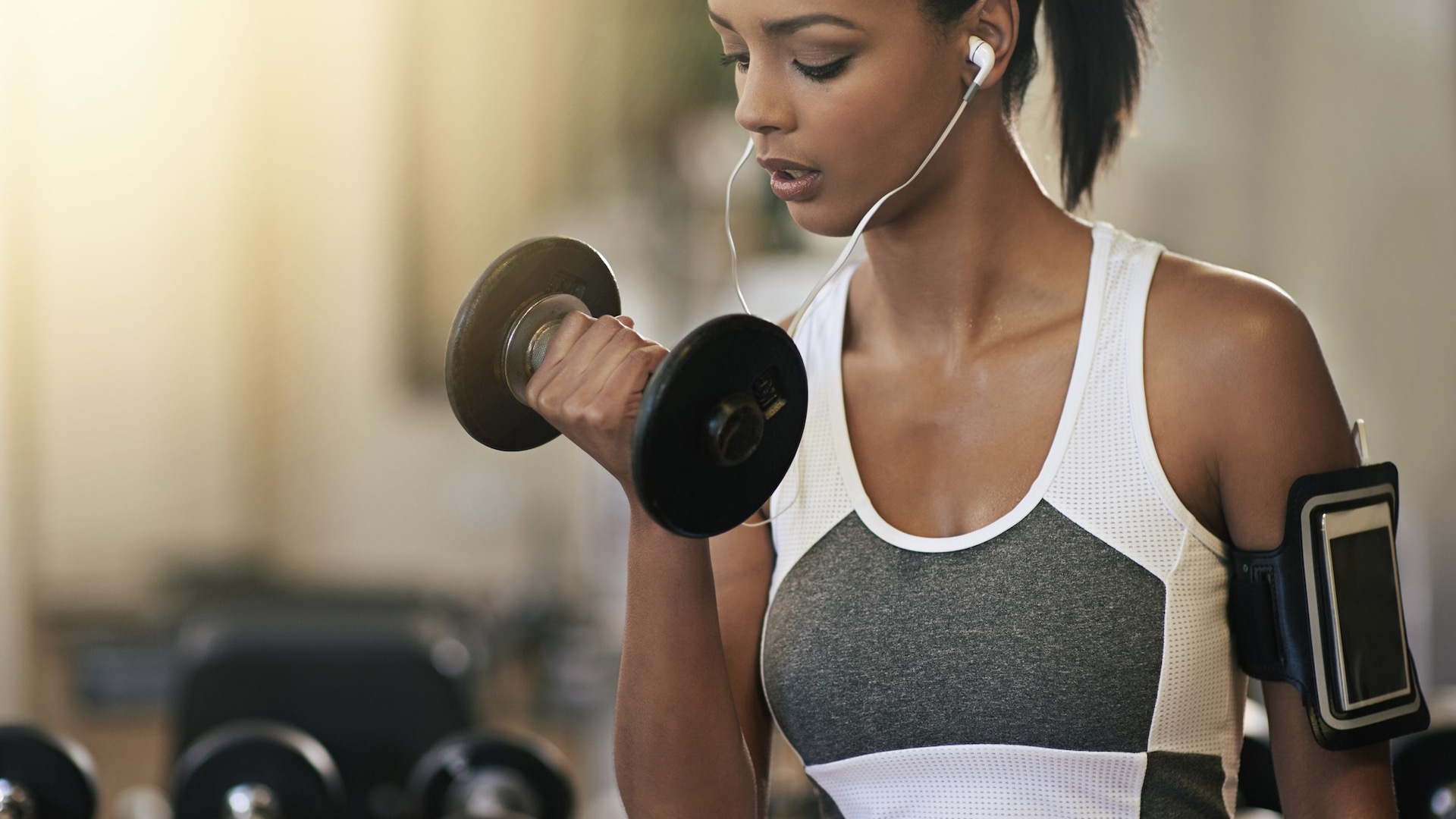Should runners lift weights – and what are the benefits?
We ask fitness experts whether runners should lift weights as part of their training

Weight training, including lifting weights, body weight training and resistance training sessions, is widely claimed to be important for runners. It's theorised that runners should lift weights as part of their training program to increase strength and power and therefore improve speed and efficiency.
As Nick Anderson, an experienced running coach, says: “If runners lift weights as part of their training program it should allow for progressions to becoming faster, stronger and a more efficient runner.”
This applies to all ages of runners, but “especially for runners who are older,” adds Nick who works with the Saucony UK team.
Another area that scientific research has looked at is distance runners and resistance training. One study found an 8% improvement in running economy created by regular resistance training – and this improved running economy can be helpful in improving pace and overall success.
Nick, who has worked as a coach with England Athletics and is part of the Saucony UK team, says: “If runners want to run faster and reduce their chances of injury it’s important to maintain good strength both muscularly and skeletally.”
In addition, lifting weights can also help to reduce the chance of injuries and niggles that come from the repetitive nature of running.
Nick says: "Lifting for runners can also prevent injuries by strengthening muscles and connective tissues."
Advnture Newsletter
All the latest inspiration, tips and guides to help you plan your next Advnture!
What is the right weights session?
There are different types of weights sessions for runners and Nick recommends either body weight sessions or free weight sessions, or a mix of both.
He says: “To start with, body weight will create enough resistance to build strength, then as runners gain strength they should introduce free weights to make each exercise more difficult.
“By creating some stress on the muscles and bones though weight sessions the body will become generally stronger, although it is also very important to allow recovery time as well. When we rest or do lighter exercise in between harder sessions, this is when the body repairs and strengthens to become stronger.”

Should a runner lift heavy or light weights?
It has been shown that it is more beneficial for runners if they lift heavier weights, than complete higher number of repeat lifts of lighter weights, although there should be a careful build up with progressively heavier weights.
This is likely because running itself is an endurance exercise much like light weights and high reps. But to build strength and power, runners need to lift heavier weights with lower reps.
Ideally, a runner should aim to lift weights between one and three times each week. In her book ROAR, Dr Stacy Sims states that three time is ideal but you can see gains from twice a week. And, as she adds, once a week is better than nothing.
Do I need to go to the gym to lift weights?
Most runners can replicate a good quality weights session at home with some basic equipment, including a mat, resistance bands and free weights, such as dumbbells and kettlebells.
There are on-line strength and conditioning sessions that you can follow, or ask a professional sports / fitness coach to create a customised plan for you.
Other forms of strength and conditioning training for runners include plyometrics, as well as incorporating stair climbing or hill running into your usual running routine.

Should runners lift weights before or after cardio?
In most cases it's advised to run first and lift weights after running. Although, if you are a runner in a strength and base building phase, then you may be advised by your coach to lift weights first.
For most runners, the will follow a running programme that has "running days" and "weights days". However, it could be that you also have harder days where you run and lift weights afterwards and then have easier days where you do only easy or flexibility exercises.
How much weight should runners lift?
A good guide is to pick a free weight and lift it 10 times. If you could lift it a couple more times, you have found the right weight. A weight that you can lift 20 times is not the right weight for you if you want to improve your strength as a runner. Equally, don’t pick a weight that leads to failure at 10 reps.
Dr Sims, in ROAR, which is aimed at women, states: “Heavy weights plus good form equal good results. But too little weight is a waste of time and too much weight is counterproductive.”
What weight-lifting moves should runners do?
The basics for weight training for runners includes the movements of push, pull, squat and lunge. Simple moves such as barbell squats, deadlifts, step-ups, lunges and calf raises are ideal.
Other beneficial exercises include bench press, dumbbell row, squat, single deadlift, lunge, split squat and planks for the core.
Nick Anderson, who is a UKA level 4 endurance coach and founder of Running With Us, adds that weight lifting and resistance exercises to focus on for improving your running include single leg exercises in particular. He explains: “When we run we transfer weight from one leg to another and repeatedly so. It is therefore beneficial to mimic this repetition when doing weights and strength building sessions.
‘For example, single leg dead lifts are a good exercise for runners, as well as lunges and squats. You could start with two leg squats, then build to single leg squats and then add in are weights to create more stress.
“The key focus for runners is glutes and hamstrings, as well as building strength and stability in the hip area.”

Is lifting weights the same for all runners?
It’s important to note that men and women should follow different weights sessions. In addition, age will play a part in what type of sessions to do.
Nick says: “It’s rare that a training session will be suitable for both genders and all ages. To gain the best benefits, it’s a good idea to seek a customised plan according to your age, fitness level and gender.
“For example, men are generally stronger to start with but this doesn’t mean that women shouldn’t lift heavier weights. It simply takes time for the body to adjust and this will be different for men and women and for each person.”
As we age, runners should be paying more attention to weights sessions because there is a natural decline in strength and muscle density.
Nick says: “Age plays an important part in how to creating a training plan, including all aspects such as running, interval sessions, weights, flexibility and recovery.”
Should runners lift weights? Yes, but get it right
The right technique is vital when runners lift weights. It’s a god idea to seek the help of a professional to learn the right method for doing strength and conditions exercises.
Nick says: “Getting the exercise wrong may lead to injury so it’s vital that you get it right in the first place before building up to lifting are weights."
Recovery is king
It’s when we rest that the regeneration and repair of the stress caused by weight lifting happens. Nick says: “Recovery is as important as the sessions themselves and if you do not allow you body to rest it will not recover and build stronger.
"I always emphasis the need to rest and recover to my runners, although, as with all training plans, this will apply in different ways to each runner.”
Adding regular weights sessions to a running program is likely to reap benefits to speed and endurance.

Fiona Russell is a widely published adventure journalist and blogger, better known as Fiona Outdoors. She is based in Scotland and is an all-round outdoors enthusiast with favorite activities including trail running, mountain walking, mountain biking, road cycling, triathlon and skiing (both downhill and backcountry). Aside from her own adventures, Fiona's biggest aim is to inspire others to enjoy getting outside and exploring, especially through her writing. She is also rarely seen without a running skort! Find out more at Fiona Outdoors.
